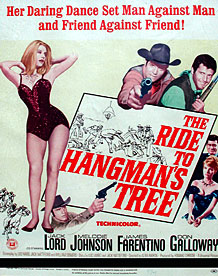Sometimes articles are contributed or suggested by readers. We owe most of today's articles to ABA, Yoshinori 'Josh' Todo, and the ever-popular anonymous. There's a lot here; let's get started, but first…
 The Chowchilla Children
The Chowchilla ChildrenLivermore, Ca. The word Chowchilla tugs at the memory, a word touching on one of the most bizarre crimes in North American history. On 15 July 1976, twenty-six children from the small town of Chowchilla, California and their schoolbus vanished off the face of the earth.Fortunately, the good guys won and all the children and the driver survived. The driver organized the escape and was celebrated as an unassuming hero. This past week the driver, Ed Ray, died in his home town.
The event reminded readers of a Hugh Pentecost story published in the 1969 fiction anthology Alfred Hitchcock's Daring Detectives, "The Day the Children Vanished". The crime was dramatized in the 1993 ABC TV movie They've Taken Our Children: The Chowchilla Kidnapping.

Dirty Cop
AVALON, Pa. From anon, just to prove not all the crazies live in Florida, a citizen thought his utility bills were unusually high. It turns out his neighbor, a Pittsburgh policeman, was breaking into his home to use his washing machine. I'm not sure soft-soaping the court will work in this case.Hot Cop
Scottburgh, SA From ABA, we have the tale of the lady cop who had the urgent need to conduct an 'in-depth investigation'… with a prisoner in a holding cell. I'd say 'under cover' investigation except there were no covers, only oral testimony. Stark naked in flagrante delicto, they were caught by fellow officers.Donut Do-Not
Orlando, FL. From Yoshinori Todo comes a couple of cons (in Florida, naturally) that seemed clever on the surface but fell short. First is the fellow who successfully convinced an Orlando Dunkin' Donuts that the corporate office had sent him to perform a surprise audit. They pulled the cash drawer so he could take it into a back room… so far, so good… I mean bad. Then he got into a bit of a rush, grabbed the cash and tried to take off, but customers foiled him before he got too far. My guess is he'll be spending time in the hole.Debit Debut
Sarasota, FL. If you or I were to steal a credit or debit card, we'd be screwed when the clerks realized the card was blocked. However, a party of five figured out a way around it. The 'customer' with the card pretended to phone the 'credit card center', which 'gave permission' for the clerk to complete the transaction 'off-line'.Except this clerk remembered hearing of a similar scheme. She contacted police while stalling the customer. The cops picked up three scammers in the store and arrested two more in the parking lot, one who'd pretended to be the credit card 'call center'.
The $1 Crime
Naples, FL. Normally if you commit a crime, even petty theft, you'd be wise to make haste outta there. But a Collier County man, somewhat inebriated, helped himself to free drink at a McDonald's soda machine. Employees called him on it, but instead of leaving when asked, he stuck around giving police time to arrive and arrest him. Word has it he's been arrested a second time. Still, he's not as crazy as the men who tried to steal an entire coke machine.The $1,000,000,000 Crime
Fort Myers, FL. Florida has long been notorious for its scammers, but a Lee County woman took matters to new depths. She claimed to have a billion dollar inheritance arriving any day now… she just needed a little help. Hey, I vote for sending her to Nigeria.Time on His Hands
Panama City, FL. Cops arrested two men in possession of a stolen shopping cart and what police believed was stolen camping equipment. While in police custody, one of the men stole a clock off the wall and tried to hide it in his back pack. I'll bet he'll be serving time.Capital T Right Here in River City
Weston, FL. Town fathers, sickened by all the rampant crime of soda-stealing and doughnut dipping figured out the solution of crime: They banned skating rinks, dinner-dance clubs, and just plain fun. They go a long way to proving Puritanism is alive and well in America, unlike the Hillsborough County Property Appraiser who sends porn to his Director of HR. But hey, this is the state where a Christian pirate radio station once interrupted air traffic control towers trying to blast music into Havana.In Your Face
Miami, FL. Some crimes are almost too awful to contemplate. It was bad enough when a high-school cross-country runner was partially blinded by an egg thrown by teens from a car at 50mph, leaving him with a fractured eye socket, a concussion, and fragments that punctured his pupil. But, our own mad Hannibal Lector wannabe took matters farther. A Miami Herald camera captured an 18-minute video of a naked Rudy Eugene who attacked Ronald Poppo, chewing off the victim's face until police arrived and shot the perpetrator. Before the week was out, HistoryMiami museum's Mystery, Mayhem, and Vice announced they're including this Zombie Attack venue in their crime tour.Baltimore, Md. Lest we conclude Florida is unique in cannibal attacks, a Maryland Morgan State University student apparently murdered his roommate and dined on his brain and heart.Murderous Porn Queen
New Port Richey, FL. A Nod to Josh
Yoshinori Todo might shy away from being labelled an 'expert', but he's the closest thing I know to an Agatha Christie authority. With this in mind, ABA sent the following to share with Josh.
Greenway House, Devon Coast, UK Mathew Prichard, "the only child of the only child of the prolific author known as the queen of crime" talks about his famous grandmother while revealing letters from her ten month world travel with her first husband, Archie Christie. Read on!











.jpeg)

















